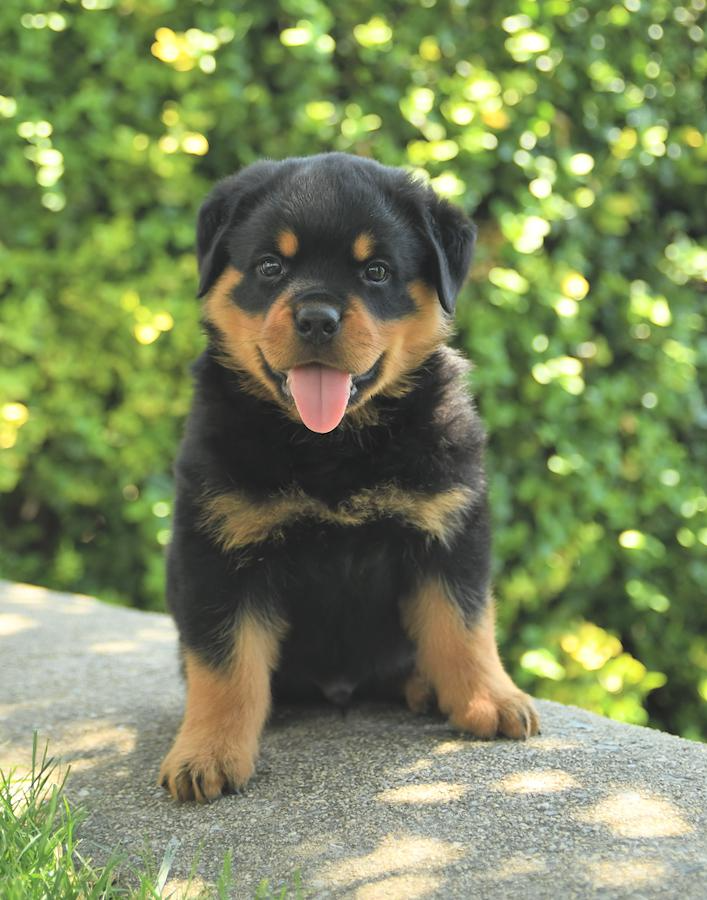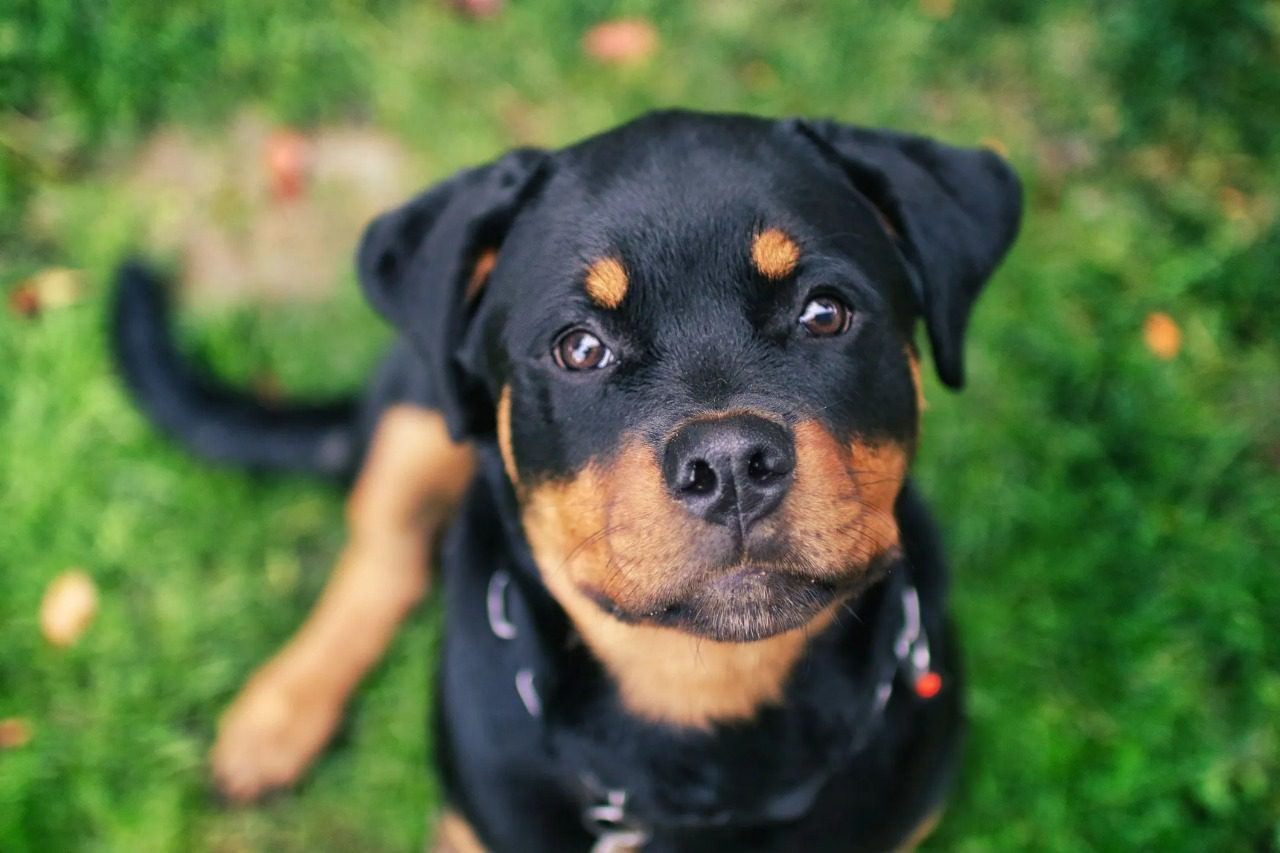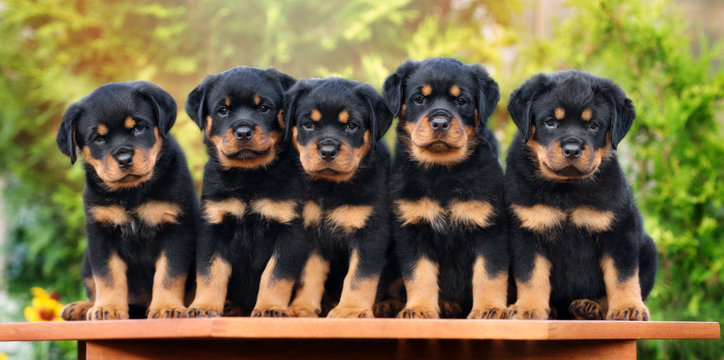



More About This Breed
Charging along the shoreline, muscles rippling and eyes gleaming, the Rottweiler splashes through the waves with power and purpose. Originally bred as a working dog, this strong and loyal breed was used to drive cattle and guard goods, prized for their intelligence, discipline, and protective nature.
With roots tracing back to ancient Rome and further developed in Germany, Rottweilers have evolved from rugged laborers to loyal family companions. Today, they’re loved not just for their strength, but for their steady temperament, sharp mind, and deep devotion to those they trust.
Personality
Rottweilers are loyal, intelligent, and affectionate. Their personality blends confidence with devotion, making them both protective companions and loving family members. Their expressive eyes and wagging tails reveal their gentle side.
While they enjoy playtime and staying active, Rottweilers are just as happy relaxing with their people. They form strong bonds with their families and are known for being calm, patient, and especially good with children.
Adaptable by nature, Rottweilers handle changes in routine, travel, or crate training well. They can be reserved around strangers at first, but they often follow their owner’s lead—if you trust someone, they likely will too.
Naturally alert and observant, they’ll let you know if someone’s approaching without being overly aggressive. With proper introductions, Rottweilers usually get along with other dogs and pets.
Early socialization and consistent, positive training are key. Expose them to new experiences from a young age, and they’ll grow into balanced, confident adults who respond best to patience and kindness.
Rottweilers do best in homes with access to a secure, fenced yard where they can move freely. However, they can adapt to apartment life with consistent daily exercise. Long walks, active play, and mental challenges are essential to keeping them content.
Rottweiler puppies are full of energy—curious, bold, and always ready to explore. During their first year, they require focused attention to guide that energy productively. While they settle as they mature, they remain playful and engaged into adulthood.
Without enough structure and stimulation, Rottweilers can become mischievous or destructive. Crate training is a helpful tool for setting boundaries and creating a safe space. Even adult Rottweilers benefit from regular exercise to stay well-behaved and relaxed.
A tired Rottweiler is a well-behaved one. Aim for at least an hour of daily exercise, split between walks, games, or activities like fetch or obedience training. Many Rottweilers also enjoy swimming, making it a great outlet for their strength and stamina.
Limit puppy exercise to protect growing joints—about 5 minutes per month of age. So, a 6-month-old pup should get no more than 30 minutes of structured activity at a time.






Coat Color And Grooming

Rottweilers have a short, dense double coat that lies flat and gives them a sleek, powerful look. Their signature black and tan markings are distinct and uniform, adding to their bold presence. While their coat is low-maintenance, they do shed year-round, with heavier shedding in spring and fall.
Weekly brushing keeps their coat healthy and helps manage loose hair. During shedding seasons, more frequent brushing is ideal. Baths can be given as needed to keep their coat clean and fresh, and nails should be trimmed regularly.
Their ears, though not long or floppy like some breeds, should still be checked and cleaned routinely to avoid buildup or infection. A consistent grooming routine not only keeps them looking sharp but also supports their overall health.
Start grooming your Rottweiler when she/he's a puppy, to get him/her used to it.
Cute fur babies available for you.
